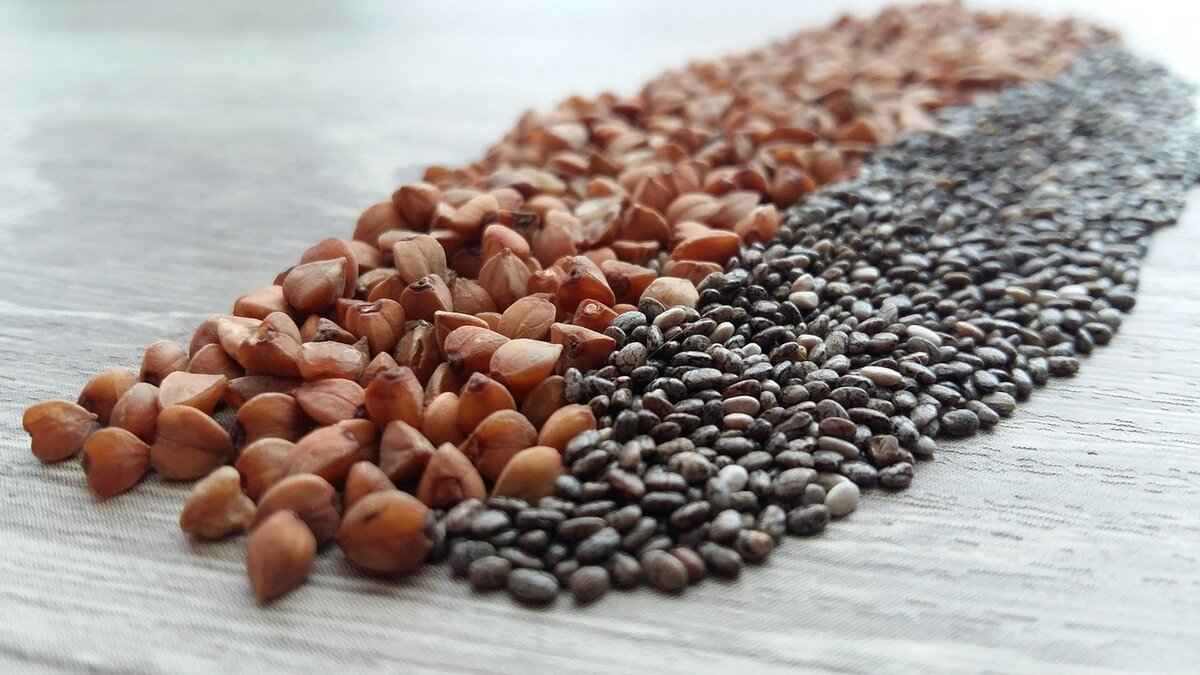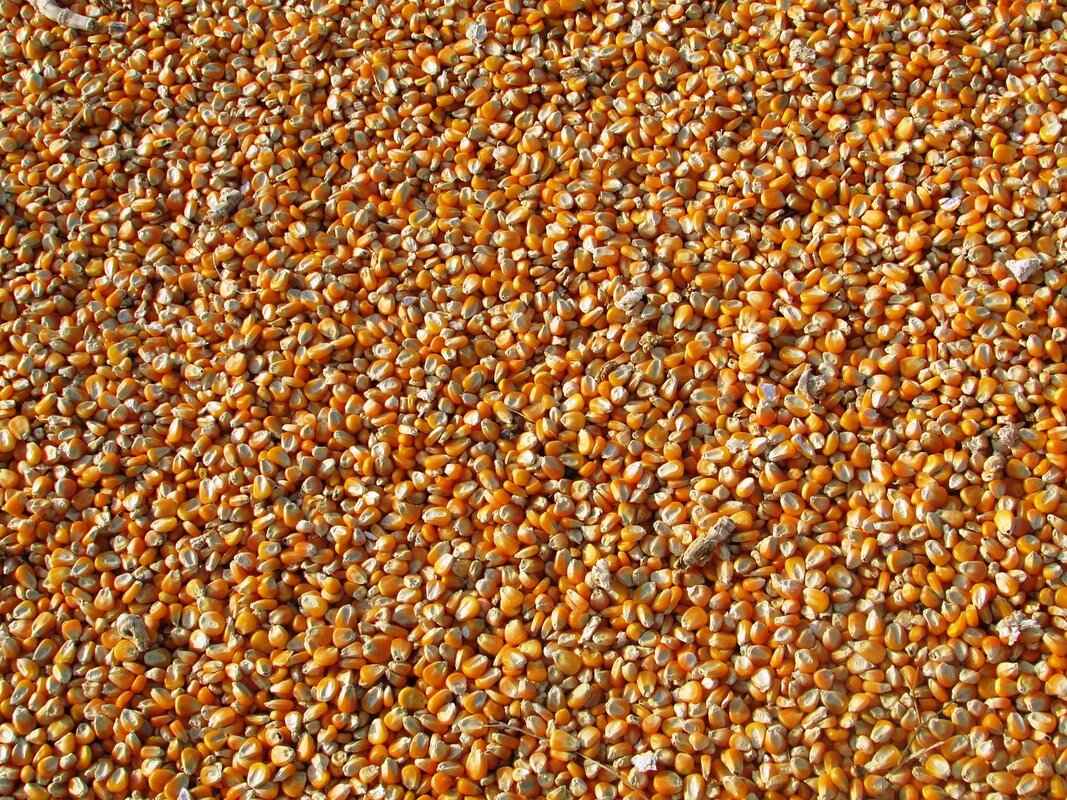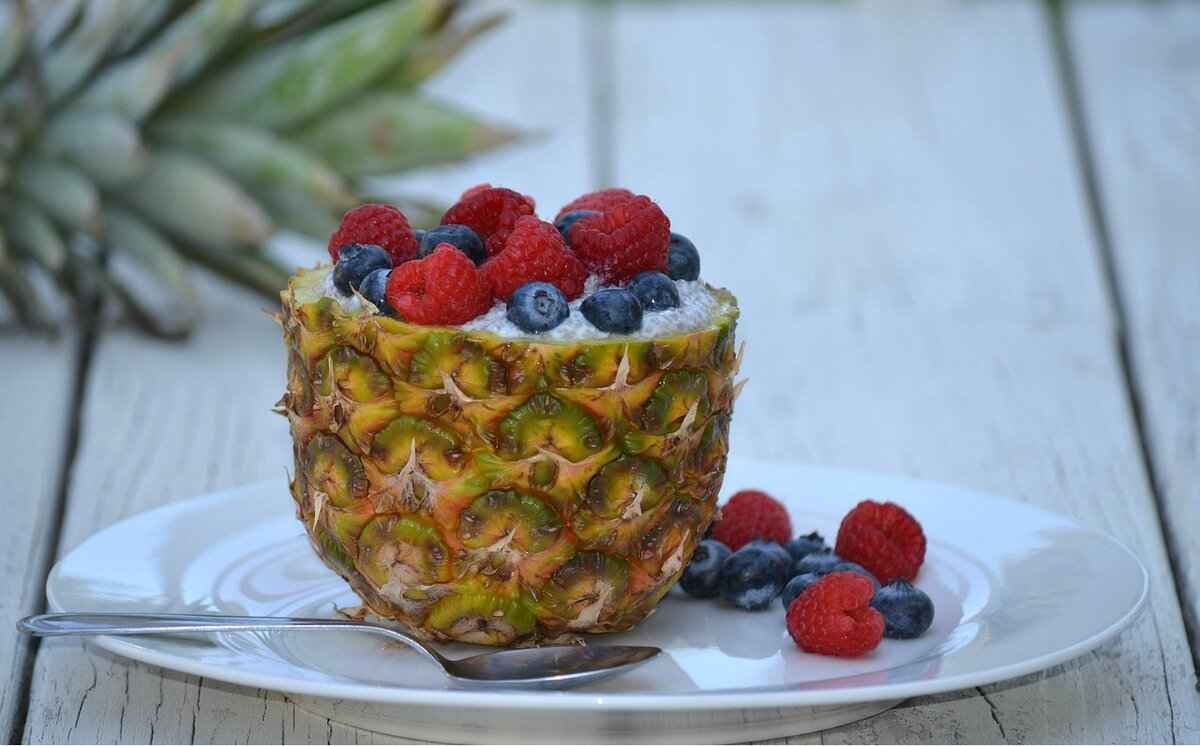This article delves into the benefits and potential risks of incorporating chia seeds into your dog’s diet, offering pet owners essential insights to make informed dietary choices for their furry companions.
What Are Chia Seeds?
Chia seeds, derived from the Salvia hispanica plant, are small, nutrient-rich seeds known for their health benefits. These seeds are packed with omega-3 fatty acids, fiber, and antioxidants, making them a popular choice not only for humans but also for pets.
Can Dogs Eat Chia Seeds?
Yes, dogs can eat chia seeds, but it is essential to do so in moderation. These seeds can offer numerous health benefits, but pet owners must understand how to safely incorporate them into their dog’s diet.
What Nutritional Benefits Do Chia Seeds Offer Dogs?
- Omega-3 Fatty Acids: These essential fatty acids promote a healthy coat, reduce inflammation, and support heart health. They may also enhance cognitive function in dogs.
- High Fiber Content: Chia seeds are an excellent source of fiber, which aids in digestion and helps maintain a healthy weight. Fiber is crucial for gut health and can alleviate constipation.
- Protein and Minerals: Chia seeds provide a good amount of protein, along with vital minerals such as calcium, magnesium, and phosphorus, contributing to overall health.
How to Introduce Chia Seeds to Your Dog’s Diet?
When introducing chia seeds, it is important to start gradually. Begin with small amounts and observe your dog’s reaction to ensure they tolerate the seeds without any adverse effects.
Recommended Serving Sizes:
| Dog Size | Recommended Serving |
|---|---|
| Small Dogs | 1 teaspoon |
| Medium Dogs | 1/2 tablespoon |
| Large Dogs | 1 tablespoon |
Preparation Tips for Chia Seeds:
Soaking chia seeds in water before feeding them to your dog can enhance their digestibility. This process creates a gel-like consistency that is easier for dogs to consume and can help prevent digestive issues.
What Are the Potential Risks of Feeding Chia Seeds to Dogs?
While chia seeds offer various benefits, there are potential risks to consider. Overfeeding can lead to digestive problems such as bloating or diarrhea. Additionally, some dogs may have allergies to chia seeds. It is always best to consult your veterinarian before introducing new foods into your dog’s diet.
Are There Alternatives to Chia Seeds for Dogs?
If chia seeds are not suitable for your dog, there are alternative sources of omega-3s and fiber, including:
- Flaxseeds: Another excellent source of omega-3 fatty acids.
- Pumpkin Seeds: Rich in fiber and beneficial nutrients.
- Fish Oil: Provides high levels of omega-3 fatty acids.
What Do Veterinarians Say About Chia Seeds for Dogs?
Veterinarian opinions on chia seeds can vary, but many agree that when used correctly, they can be a healthy addition to a dog’s diet. Consulting with a veterinarian ensures that your dog’s specific health needs are addressed and that any dietary changes are safe.
Final Thoughts on Chia Seeds for Dogs
In conclusion, chia seeds can be a nutritious supplement to your dog’s diet when introduced properly. Understanding their benefits, potential risks, and appropriate serving sizes is crucial for promoting your dog’s health and well-being.

What Are Chia Seeds?
Chia seeds are small, yet powerful seeds that come from the Salvia hispanica plant, which is native to Central and South America. These tiny seeds have gained immense popularity as a superfood due to their impressive nutritional profile. Rich in omega-3 fatty acids, fiber, and antioxidants, chia seeds are not only beneficial for humans but also for our furry companions, including dogs.
Chia seeds are often praised for their ability to absorb water, expanding in size and forming a gel-like consistency. This unique property makes them an excellent addition to various dishes, from smoothies to dog treats. Their versatility and health benefits have made them a staple in many households.
Chia seeds are packed with essential nutrients that can significantly benefit both dogs and humans. Here’s a breakdown of some of the key components:
- Omega-3 Fatty Acids: These healthy fats are crucial for maintaining a shiny coat and promoting heart health. They also have anti-inflammatory properties that can help reduce joint pain in dogs.
- Fiber: Chia seeds are an excellent source of dietary fiber, which aids in digestion and helps maintain a healthy weight by keeping your dog feeling full.
- Protein: With a decent amount of protein, chia seeds can contribute to your dog’s muscle health and overall energy levels.
- Vitamins and Minerals: Chia seeds contain essential vitamins and minerals, including calcium, magnesium, and phosphorus, which are vital for bone health and metabolic functions.
Feeding chia seeds to dogs can offer numerous health benefits. Here are some of the most notable advantages:
- Improved Digestion: The high fiber content in chia seeds aids in digestion, helping to prevent constipation and promote gut health.
- Enhanced Coat Health: Omega-3 fatty acids support skin and coat health, leading to a shinier and healthier appearance.
- Weight Management: The gel-like substance formed when chia seeds absorb water can help dogs feel full, which may assist in weight management.
- Increased Energy Levels: The combination of protein and healthy fats provides a sustained energy source for active dogs.
When introducing chia seeds to your dog’s diet, it’s essential to do so gradually. Start with a small amount, such as 1 teaspoon for small dogs and 1 tablespoon for larger dogs. Monitor your dog’s reaction for any signs of digestive upset.
Soaking chia seeds in water before feeding them can enhance digestibility. This process allows the seeds to expand and form a gel, making them easier for dogs to consume and absorb nutrients.
While chia seeds are generally safe for dogs, there are some potential risks to consider. Overfeeding can lead to digestive issues, such as diarrhea or bloating. Additionally, some dogs may have allergies to chia seeds, so it’s important to consult with your veterinarian before adding them to your dog’s diet.
If chia seeds are not suitable for your dog, there are other options available. Alternatives like flaxseeds, pumpkin seeds, and fish oil also provide beneficial omega-3 fatty acids and fiber. Each alternative has its unique benefits, so it’s worth discussing these options with your veterinarian.
In summary, chia seeds can be a nutritious addition to your dog’s diet when introduced correctly. Their rich nutrient profile and health benefits make them a popular choice among pet owners looking to enhance their dog’s nutrition.

Can Dogs Eat Chia Seeds?
As a pet owner, you may wonder about the safety and benefits of incorporating chia seeds into your dog’s diet. These tiny seeds, known for their nutritional value, can be a great addition, but moderation is key. This article delves into the question of whether dogs can safely consume chia seeds, exploring their benefits, risks, and how to introduce them into your furry friend’s meals.
Understanding Chia Seeds
Chia seeds come from the Salvia hispanica plant and are celebrated for their rich nutritional profile. They are an excellent source of omega-3 fatty acids, fiber, protein, and various vitamins and minerals. This combination makes them a popular choice for enhancing both human and canine diets.
Health Benefits of Chia Seeds for Dogs
- Omega-3 Fatty Acids: These essential fats contribute to a shiny coat and can help reduce inflammation. They are also beneficial for heart health and may enhance cognitive function in dogs.
- High Fiber Content: Chia seeds are packed with fiber, which aids in digestion and helps maintain a healthy weight. This can be particularly beneficial for dogs that struggle with constipation or digestive issues.
- Rich in Antioxidants: The antioxidants in chia seeds may help combat free radicals, supporting your dog’s overall health and potentially reducing the risk of chronic diseases.
How to Safely Introduce Chia Seeds to Your Dog
When considering adding chia seeds to your dog’s diet, it is essential to do so gradually. Start with a small amount, such as a teaspoon for small dogs and a tablespoon for larger breeds. Monitor your dog’s reaction closely to ensure they do not experience any adverse effects.
Preparation Tips for Chia Seeds
Soaking chia seeds in water before feeding them to your dog is recommended. This process creates a gel-like consistency that is easier for dogs to digest. You can mix the soaked seeds into their regular food or offer them as a treat.
Potential Risks of Feeding Chia Seeds
While chia seeds are generally safe for dogs, there are potential risks to consider. Overfeeding can lead to digestive issues such as bloating or diarrhea. Additionally, some dogs may have allergies to chia seeds. Always consult your veterinarian before introducing any new food into your dog’s diet.
Are There Alternatives to Chia Seeds?
If you find that chia seeds are not suitable for your dog, there are several alternatives rich in omega-3s and fiber. Options include flaxseeds, pumpkin seeds, and fish oil. Each of these alternatives has unique benefits and can be incorporated into your dog’s diet based on their specific health needs.
Veterinarian Insights on Chia Seeds for Dogs
Veterinarians have varying opinions on the inclusion of chia seeds in canine diets. However, many agree that when introduced correctly, chia seeds can be a healthy supplement. Consulting with your veterinarian can provide tailored advice that suits your dog’s individual health requirements.
Final Thoughts on Feeding Chia Seeds to Dogs
In conclusion, chia seeds can be a nutritious addition to your dog’s diet when introduced properly and in moderation. Understanding the benefits, risks, and appropriate serving sizes is crucial for promoting your dog’s health and well-being. Always prioritize your pet’s dietary needs and consult with a veterinarian to ensure a balanced and safe diet.

What Nutritional Benefits Do Chia Seeds Offer Dogs?
When it comes to enhancing your dog’s diet, chia seeds stand out as a powerhouse of nutrition. These tiny seeds are not only packed with essential nutrients but also offer a variety of health benefits that can significantly improve your furry friend’s well-being. Below, we explore the various nutritional benefits that chia seeds provide for dogs.
Chia seeds are incredibly nutrient-dense, making them an excellent addition to your dog’s diet. They are a rich source of:
- Essential Fatty Acids: Chia seeds are abundant in omega-3 fatty acids, which are crucial for maintaining a healthy coat and skin. These healthy fats can also help reduce inflammation, promoting overall health and vitality.
- High Fiber Content: The significant fiber content in chia seeds aids digestion and can help maintain a healthy weight. Fiber supports gut health and can alleviate constipation, ensuring your dog feels comfortable and satisfied.
- Protein: Chia seeds are a great plant-based protein source, providing essential amino acids that contribute to muscle health and overall energy levels.
- Vitamins and Minerals: These seeds are rich in vital nutrients, including calcium, magnesium, phosphorus, and antioxidants, which support various bodily functions and enhance your dog’s immune system.
Omega-3 fatty acids are particularly beneficial for dogs. They play a vital role in:
- Coat Health: Regular consumption of omega-3s can lead to a shinier, healthier coat.
- Reducing Inflammation: These fatty acids can help manage inflammatory conditions, including arthritis, making them essential for older dogs.
- Cognitive Function: Omega-3s are known to support brain health, potentially improving cognitive function in aging dogs.
Fiber is an essential component of your dog’s diet for several reasons:
- Digestive Health: Fiber promotes regular bowel movements and helps prevent constipation, ensuring your dog’s digestive system functions smoothly.
- Weight Management: A high-fiber diet can help your dog feel full longer, which can be beneficial for weight control.
- Gut Health: Fiber acts as a prebiotic, feeding the good bacteria in your dog’s gut, which is vital for overall health.
To maximize the benefits of chia seeds, consider the following tips:
- Start Slowly: Introduce chia seeds gradually into your dog’s diet to monitor their reaction.
- Soak Before Serving: Soaking chia seeds in water for about 30 minutes before feeding can enhance their digestibility and prevent any potential digestive upset.
- Mix with Food: You can easily mix soaked chia seeds into your dog’s regular food, ensuring they enjoy the benefits without fuss.
In summary, chia seeds are a nutritional powerhouse that can significantly enhance your dog’s health when incorporated appropriately into their diet. Rich in essential fatty acids, fiber, protein, and various vitamins and minerals, these seeds support overall well-being, making them a valuable addition to your pet’s nutrition plan.
Omega-3 Fatty Acids
are essential nutrients that play a crucial role in maintaining overall health for dogs. These fatty acids, which are primarily found in fish oil and certain plant sources like chia seeds, have garnered significant attention due to their numerous health benefits. Let’s explore why these fatty acids are so important for your furry friend.
Omega-3 fatty acids are a type of polyunsaturated fat that is vital for various bodily functions. They are classified into three main types: ALA (alpha-linolenic acid), EPA (eicosapentaenoic acid), and DHA (docosahexaenoic acid). While ALA is primarily found in plant sources, EPA and DHA are mainly derived from marine sources such as fish.
- Improved Coat Health: One of the most noticeable benefits of omega-3 fatty acids is their ability to enhance the health and appearance of your dog’s coat. These fats help to maintain skin moisture and can reduce shedding, leading to a shiny and healthy coat.
- Reduction of Inflammation: Omega-3s have potent anti-inflammatory properties that can help alleviate symptoms of arthritis and other inflammatory conditions in dogs. This is particularly beneficial for older dogs or those with joint issues.
- Heart Health: Incorporating omega-3 fatty acids into your dog’s diet can promote cardiovascular health. These fats help reduce triglycerides and improve overall heart function, which is essential for a dog’s longevity.
- Cognitive Function: Research suggests that omega-3 fatty acids may play a role in enhancing cognitive function in dogs, particularly as they age. This can lead to improved memory and a decrease in age-related cognitive decline.
To ensure your dog receives adequate omega-3 fatty acids, consider incorporating the following foods into their diet:
- Fish Oil: Salmon and sardines are excellent sources of EPA and DHA.
- Chia Seeds: These tiny seeds are packed with ALA and can be easily added to your dog’s meals.
- Flaxseeds: Like chia seeds, flaxseeds are rich in ALA and can support your dog’s overall health.
- Walnuts: Though not as commonly fed to dogs, walnuts are another plant source of ALA.
The appropriate amount of omega-3 fatty acids varies based on your dog’s size, age, and health status. Generally, a good starting point is:
- Small dogs: Up to 100 mg of combined EPA and DHA per day.
- Medium dogs: Up to 200 mg per day.
- Large dogs: Up to 300 mg per day.
It’s essential to consult with your veterinarian to determine the right dosage tailored to your dog’s specific needs.
While omega-3 fatty acids are generally safe for dogs, over-supplementation can lead to issues such as gastrointestinal upset or an increased risk of bleeding. Always introduce new supplements gradually and monitor your dog for any adverse reactions.
In summary, omega-3 fatty acids provide a multitude of health benefits for dogs, from enhancing coat quality to supporting heart and cognitive health. By incorporating appropriate sources of these essential fats into your dog’s diet, you can help ensure their well-being and longevity.
High Fiber Content
The in chia seeds is one of the many reasons pet owners consider adding them to their dog’s diet. Fiber plays a crucial role in maintaining a dog’s digestive health, which can significantly enhance their overall well-being. In this section, we will delve deeper into how fiber benefits dogs and why chia seeds are an excellent source.
Fiber is essential for dogs as it aids in digestion and helps regulate bowel movements. A diet rich in fiber can assist in:
- Promoting Healthy Digestion: Fiber helps to bulk up stool and encourages regular bowel movements, reducing the risk of constipation.
- Weight Management: High-fiber foods can help dogs feel full longer, which can aid in maintaining a healthy weight. This is particularly beneficial for dogs prone to obesity.
- Supporting Gut Health: Fiber acts as a prebiotic, feeding the beneficial bacteria in the gut, which is vital for a healthy digestive system.
Chia seeds are an exceptional source of dietary fiber. Just a small amount can provide a significant boost to your dog’s fiber intake. Here are some key points about chia seeds:
- Soluble and Insoluble Fiber: Chia seeds contain both types of fiber, which work together to support digestive health. Soluble fiber absorbs water and forms a gel-like substance, helping to slow digestion and improve nutrient absorption. Insoluble fiber adds bulk to the stool, promoting regularity.
- Hydration Benefits: When chia seeds are soaked in water, they expand and form a gel. This not only makes them easier for dogs to digest but also contributes to their hydration, especially for dogs that may not drink enough water.
Yes, the fiber in chia seeds can help alleviate constipation in dogs. When dogs consume chia seeds, the soluble fiber absorbs water in the intestines, softening the stool and making it easier to pass. This can be particularly helpful for dogs that experience occasional digestive issues.
When introducing chia seeds to your dog’s diet, it’s essential to do so gradually. Start with a small amount, such as half a teaspoon for small dogs and one teaspoon for larger breeds. Monitor your dog’s response and adjust the serving size as needed. Soaking the seeds in water for at least 30 minutes before feeding can enhance their digestibility.
While fiber is beneficial, it’s important to avoid overfeeding chia seeds. Too much fiber can lead to digestive upset, including gas and diarrhea. Always consult your veterinarian to determine the appropriate amount based on your dog’s specific dietary needs and health status.
In summary, the in chia seeds offers numerous benefits for dogs, including improved digestion, weight management, and gut health support. By incorporating them into your dog’s diet responsibly, you can help promote their overall health and well-being.

How to Introduce Chia Seeds to Your Dog’s Diet?
Introducing chia seeds into your dog’s diet can be a beneficial addition, but it requires careful consideration and a gradual approach. This ensures that your furry friend adapts well to this new food without any adverse reactions. Here’s a detailed guide on how to safely introduce chia seeds to your dog.
When introducing any new food, including chia seeds, it’s essential to start with small amounts. This allows your dog’s digestive system to adjust to the new ingredient. Begin with just a pinch or a small sprinkle of chia seeds mixed into their regular food. Monitoring your dog’s reaction during this initial phase is crucial. Look for any signs of discomfort, such as vomiting or diarrhea, which could indicate intolerance.
As you introduce chia seeds, keep a close eye on how your dog responds. Every dog is unique, and while some may tolerate chia seeds well, others may not. If your dog shows any signs of distress, it’s important to stop feeding the seeds immediately and consult your veterinarian. This careful observation can help ensure that your dog enjoys the benefits of chia seeds without any negative side effects.
Understanding the appropriate serving size is key to safely incorporating chia seeds into your dog’s diet. For small breeds, start with about 1/4 teaspoon per day. Medium-sized dogs can handle up to 1/2 teaspoon, while larger breeds may be able to tolerate 1 teaspoon daily. Adjust these amounts based on your dog’s size and overall diet, and remember that moderation is essential.
Chia seeds can absorb a significant amount of water, expanding to create a gel-like substance. To make them easier for your dog to digest, consider soaking the seeds in water for a few hours before serving. This not only enhances digestibility but also helps prevent any potential choking hazards. You can mix the soaked seeds into their food or offer them as a treat.
To make chia seeds more appealing, you can combine them with other dog-friendly foods. Mixing chia seeds with yogurt, mashed fruits, or even homemade dog treats can enhance flavor and texture. This can encourage your dog to eat the seeds while also providing additional nutrients.
Before making any significant changes to your dog’s diet, it’s always wise to consult with your veterinarian. They can provide personalized advice based on your dog’s specific health needs and dietary requirements. Your vet may also suggest alternative sources of omega-3 fatty acids and fiber if chia seeds are not suitable for your pet.
- Overfeeding: Too many chia seeds can lead to digestive upset.
- Unsoaked Seeds: Feeding dry chia seeds can pose a choking hazard.
- Ignoring Allergies: Be cautious if your dog has a history of food allergies.
By following these guidelines, you can safely introduce chia seeds into your dog’s diet, allowing them to enjoy the numerous health benefits these tiny seeds offer. Remember to take it slow, monitor their reactions, and consult with your veterinarian to ensure a healthy and balanced diet for your furry companion.
Recommended Serving Sizes
When it comes to incorporating chia seeds into your dog’s diet, understanding the appropriate serving sizes is essential for ensuring their health and well-being. These tiny seeds can provide numerous benefits, but the right amount varies depending on your dog’s size and dietary requirements.
For small dogs, a serving size of one teaspoon of chia seeds is generally sufficient. This amount allows them to enjoy the health benefits without overwhelming their digestive system. It’s important to monitor their reaction when introducing any new food, including chia seeds.
On the other hand, larger dogs can typically handle a serving size of up to one tablespoon. This increased amount takes into account their larger body mass and higher caloric needs. However, it’s crucial to adjust the serving based on your dog’s specific needs, activity level, and overall health.
Here are some practical tips for determining the right serving size for your dog:
- Consult Your Veterinarian: Before adding chia seeds to your dog’s diet, always consult with a veterinarian. They can provide personalized advice based on your dog’s health history and dietary needs.
- Start Small: If your dog has never had chia seeds before, start with a smaller amount than recommended. Gradually increase the serving size while observing any changes in their behavior or digestion.
- Monitor for Reactions: Watch for any signs of discomfort or allergies, such as gastrointestinal upset or skin reactions. If you notice any adverse effects, discontinue use and consult your vet.
- Consider Activity Level: Active dogs may benefit from larger servings due to their higher energy expenditure, while less active dogs may require smaller amounts to avoid weight gain.
Additionally, it’s essential to remember that chia seeds should not replace your dog’s regular meals. Instead, they should be viewed as a nutritional supplement that can enhance their overall diet. Incorporating chia seeds can contribute to a balanced diet, providing essential nutrients like omega-3 fatty acids and fiber.
For optimal results, consider soaking the chia seeds in water before serving. This process creates a gel-like consistency that is easier for dogs to digest and can enhance their hydration. Mixing the soaked seeds into their regular food can also make it more appealing.
In summary, understanding the recommended serving sizes for chia seeds is vital for any dog owner looking to enrich their pet’s diet. By starting with the appropriate amounts and consulting with a veterinarian, you can safely introduce this superfood into your dog’s meals. Always prioritize your dog’s health and well-being by adjusting portions as needed.
Preparation Tips for Chia Seeds
When considering how to incorporate chia seeds into your dog’s diet, proper preparation is essential. Soaking chia seeds in water before serving them to your furry friend can significantly enhance their digestibility. This simple process transforms the seeds into a gel-like consistency, making them easier for dogs to consume and absorb nutrients effectively.
Soaking chia seeds serves multiple purposes:
- Increased Digestibility: When soaked, chia seeds expand and form a gel, which can be easier for dogs to digest compared to dry seeds. This is particularly beneficial for dogs with sensitive stomachs.
- Hydration: Chia seeds can absorb up to 12 times their weight in water, which helps keep your dog hydrated, especially in hot weather or after exercise.
- Nutrient Absorption: The gel-like substance allows for better nutrient absorption in the digestive tract, maximizing the health benefits of the seeds.
Here’s a simple step-by-step guide for soaking chia seeds:
1. Measure the desired amount of chia seeds (1 tsp for small dogs, 1 tbsp for larger dogs).2. Place the seeds in a bowl.3. Add 3-4 times the amount of water to the seeds.4. Stir the mixture well to prevent clumping.5. Allow the seeds to soak for at least 30 minutes or until they form a gel-like consistency.6. Serve the soaked chia seeds mixed with your dog's food or as a treat.
It’s important to remember that moderation is key. Here are some guidelines:
- Small Dogs: 1 teaspoon of soaked chia seeds per day.
- Medium Dogs: 1 tablespoon of soaked chia seeds per day.
- Large Dogs: Up to 2 tablespoons per day, depending on their size and dietary needs.
After introducing chia seeds, monitor your dog for any signs of digestive upset, such as gas or diarrhea. If these symptoms occur, consider reducing the amount or consulting with your veterinarian for personalized advice.
In addition to soaking, there are other preparation methods that can be beneficial:
- Mixing with Food: You can sprinkle dry chia seeds directly onto your dog’s food, but ensure they drink plenty of water to aid digestion.
- Adding to Treats: Incorporate soaked chia seeds into homemade dog treats for added nutrition.
Incorporating chia seeds into your dog’s diet can offer numerous health benefits, from improved digestion to enhanced hydration. By soaking the seeds first, you not only make them more palatable but also ensure that your dog receives the maximum nutritional value. Always keep an eye on your dog’s response to new foods, and consult your veterinarian if you have any concerns.

What Are the Potential Risks of Feeding Chia Seeds to Dogs?
Chia seeds have gained popularity as a superfood not only for humans but also for our furry companions. While they are packed with beneficial nutrients, it is essential for pet owners to be aware of the potential risks associated with feeding chia seeds to dogs. Understanding these risks can help ensure that your dog’s diet remains healthy and balanced.
While chia seeds offer numerous health benefits, there are potential risks that pet owners should consider. Here are some critical points to keep in mind:
- Digestive Issues: Overfeeding chia seeds can lead to digestive problems in dogs. The high fiber content, if introduced too quickly or in excessive amounts, may cause gas, bloating, or diarrhea. It is crucial to introduce chia seeds gradually into your dog’s diet.
- Allergic Reactions: Some dogs may have allergies to chia seeds. Symptoms can include itchiness, swelling, or gastrointestinal upset. If you notice any adverse reactions after feeding chia seeds, it is essential to consult your veterinarian.
- Choking Hazard: Chia seeds can expand significantly when they come into contact with moisture. If a dog consumes dry chia seeds without proper hydration, there is a risk of them swelling in the throat, leading to a potential choking hazard. Always soak the seeds before feeding them to your dog.
- High-Calorie Content: Although chia seeds are nutritious, they are also calorie-dense. Overfeeding can lead to weight gain, especially in less active dogs. It is essential to monitor your dog’s overall caloric intake when adding chia seeds to their diet.
To mitigate the risks associated with chia seeds, here are some practical tips for safely incorporating them into your dog’s diet:
- Start Small: Begin with a small amount of chia seeds, such as 1/4 teaspoon for small dogs and 1/2 teaspoon for larger breeds. Gradually increase the amount while monitoring your dog’s reaction.
- Soak the Seeds: Soaking chia seeds in water for at least 30 minutes before feeding them to your dog can help prevent choking and improve digestibility.
- Consult Your Veterinarian: Always discuss dietary changes with your veterinarian, especially if your dog has pre-existing health conditions or is on medication.
If you suspect that your dog is having a negative reaction to chia seeds, it is crucial to act promptly:
- Stop Feeding Chia Seeds: Immediately discontinue feeding chia seeds to your dog if you notice any adverse effects.
- Monitor Symptoms: Keep an eye on your dog’s symptoms, noting any changes in behavior, appetite, or digestion.
- Contact Your Veterinarian: If symptoms persist or worsen, reach out to your veterinarian for advice and potential treatment options.
In summary, while chia seeds can be a beneficial addition to your dog’s diet, it is vital to approach their introduction with care. By being aware of the potential risks and following safe feeding practices, you can help ensure that your dog enjoys the health benefits of chia seeds without experiencing adverse effects.

Are There Alternatives to Chia Seeds for Dogs?
When considering the best dietary options for your furry friend, it’s essential to explore alternatives to chia seeds. While chia seeds offer numerous health benefits, they may not be suitable for every dog. Fortunately, there are several other sources of omega-3 fatty acids and fiber that can be beneficial for your pet’s health.
- Flaxseeds: Flaxseeds are an excellent source of omega-3 fatty acids, particularly alpha-linolenic acid (ALA), which can promote healthy skin and a shiny coat. They also contain a good amount of fiber, which aids in digestion. However, it’s essential to ground flaxseeds before feeding them to your dog, as whole seeds may pass through the digestive system undigested.
- Pumpkin Seeds: Pumpkin seeds are another nutritious option packed with fiber and antioxidants. They are known for their ability to support urinary health and can help with weight management. Additionally, pumpkin seeds contain zinc, which is beneficial for the immune system. Just ensure they are unsalted and roasted without any added spices.
- Fish Oil: Fish oil is a potent source of omega-3 fatty acids, particularly EPA and DHA. These fatty acids are crucial for reducing inflammation and promoting heart health. Fish oil can also enhance your dog’s coat quality. However, it’s vital to choose high-quality fish oil supplements and consult your veterinarian for the appropriate dosage.
- Hemp Seeds: Hemp seeds are rich in omega-3 and omega-6 fatty acids, which can help maintain a healthy balance in your dog’s diet. They also provide protein, vitamins, and minerals that contribute to overall health. Like flaxseeds, it’s best to feed ground hemp seeds to ensure better absorption of nutrients.
When selecting an alternative to chia seeds, consider your dog’s specific health needs and dietary restrictions. Some dogs may have allergies or sensitivities to certain seeds or oils. It’s always a good idea to introduce new foods gradually and monitor your dog for any adverse reactions.
Consulting with your veterinarian can provide personalized recommendations based on your dog’s health profile. They can help you determine the appropriate serving sizes and ensure that the alternative you choose complements your dog’s overall diet.
Each alternative comes with unique benefits:
- Flaxseeds: They promote digestive health and provide essential fatty acids that support skin and coat health.
- Pumpkin Seeds: They are high in fiber, which aids digestion, and can help prevent urinary issues.
- Fish Oil: It supports heart health and reduces inflammation, making it ideal for older dogs or those with joint issues.
- Hemp Seeds: They provide a balanced source of omega fatty acids and protein, enhancing overall nutrition.
While these alternatives can be beneficial, there are some risks to be aware of:
- Overconsumption: Too much of any new food can lead to digestive upset. Always start with small amounts.
- Allergies: Some dogs may be allergic to seeds or fish oil. Watch for signs of allergies, such as itching, vomiting, or diarrhea.
- Quality Control: Ensure that any oil or seed products are high quality and free from harmful additives.
In summary, while chia seeds can be a healthy addition to your dog’s diet, there are several alternatives that can provide similar benefits. By selecting the right option and consulting with your veterinarian, you can ensure that your dog receives a balanced and nutritious diet.

What Do Veterinarians Say About Chia Seeds for Dogs?
When it comes to the dietary needs of our canine companions, veterinarians play a crucial role in guiding pet owners. One topic that has garnered attention in recent years is the inclusion of chia seeds in a dog’s diet. While opinions among veterinarians may vary, many agree that these tiny seeds can offer several health benefits when introduced properly.
Many veterinarians acknowledge that chia seeds are a nutrient-dense superfood that can contribute positively to a dog’s health. Rich in omega-3 fatty acids, fiber, and antioxidants, chia seeds can help support various bodily functions. However, it is essential to approach their incorporation into a dog’s diet with caution and understanding.
Veterinary experts often emphasize the importance of moderation. While chia seeds can provide health benefits, overfeeding can lead to digestive issues. Some dogs may experience an upset stomach or diarrhea if introduced to chia seeds too quickly or in excessive amounts. Thus, it is crucial to start with small quantities and observe your dog’s reaction.
According to veterinarians, the benefits of chia seeds include:
- Heart Health: The omega-3 fatty acids found in chia seeds can help reduce inflammation and support cardiovascular health.
- Digestive Health: The high fiber content aids in digestion and can help maintain a healthy weight, which is particularly beneficial for dogs prone to obesity.
- Skin and Coat Condition: Regular consumption of chia seeds may lead to a shinier coat and healthier skin.
Veterinarians recommend consulting with a professional before adding chia seeds to your dog’s diet. Each dog has unique health requirements based on factors such as age, breed, and pre-existing health conditions. A veterinarian can provide tailored advice, ensuring that your dog’s specific needs are met.
Additionally, introducing chia seeds should be done gradually. Start with a small amount, such as a teaspoon for small dogs or a tablespoon for larger breeds, and monitor your dog for any adverse reactions. If your dog tolerates the seeds well, you can gradually increase the quantity.
While chia seeds are generally safe for most dogs, there are a few potential risks to be aware of:
- Allergic Reactions: Some dogs may have allergies to chia seeds. If you notice any signs of an allergic reaction, such as itching or gastrointestinal distress, discontinue use immediately.
- Choking Hazard: Whole chia seeds can pose a choking risk, especially for small dogs. It is advisable to soak them in water to create a gel-like consistency before feeding.
If chia seeds are not suitable for your dog, veterinarians suggest considering other sources of omega-3 fatty acids and fiber. Options like flaxseeds, pumpkin seeds, and fish oil can also provide similar benefits. Always consult your veterinarian before making any significant changes to your dog’s diet.
In summary, while many veterinarians support the inclusion of chia seeds in a dog’s diet, it is essential to do so with care. Consulting with a veterinarian ensures that your furry friend receives the best possible nutrition tailored to their individual health needs.

Final Thoughts on Chia Seeds for Dogs
Chia seeds have gained popularity as a superfood, not just for humans but also for our furry companions. As a pet owner, understanding the role of chia seeds in your dog’s diet can be beneficial. This article will delve into the various aspects of incorporating chia seeds into your dog’s meals, ensuring you are well-informed about their advantages and potential drawbacks.
Chia seeds are packed with essential nutrients that can contribute to your dog’s overall health. They are a fantastic source of omega-3 fatty acids, which are crucial for maintaining a shiny coat and healthy skin. Moreover, these seeds can help combat inflammation, making them a valuable addition to your dog’s diet, especially for those with joint issues.
These tiny seeds are not only rich in omega-3s but also offer a variety of other nutrients:
- Fiber: Aids in digestion and helps maintain a healthy weight.
- Protein: Supports muscle development and overall energy levels.
- Antioxidants: Help combat free radicals and promote overall health.
When introducing chia seeds to your dog’s diet, it’s essential to do so gradually. Start with a small amount, such as a 1/4 teaspoon for small dogs, and up to a 1 tablespoon for larger breeds. Monitor your dog’s reaction closely to ensure there are no adverse effects.
Soaking chia seeds in water or broth before serving can enhance their digestibility. This process allows the seeds to expand and form a gel-like consistency, making them easier for your dog to consume. You can mix the soaked seeds into their regular food or offer them as a treat.
While chia seeds are generally safe for dogs, overconsumption can lead to digestive issues, such as bloating or diarrhea. Additionally, some dogs may have allergies to chia seeds, so it’s crucial to consult with your veterinarian before adding them to your dog’s diet.
If chia seeds are not suitable for your dog, consider alternatives like:
- Flaxseeds: Another excellent source of omega-3s and fiber.
- Pumpkin Seeds: Rich in antioxidants and beneficial for digestive health.
- Fish Oil: Provides omega-3 fatty acids and supports heart health.
Veterinarians often highlight the benefits of chia seeds when introduced correctly. Many agree that these seeds can enhance a dog’s diet, provided that pet owners are mindful of serving sizes and their dog’s specific health needs.
In conclusion, chia seeds can be a nutritious supplement to your dog’s diet when introduced properly. Understanding the benefits, risks, and appropriate serving sizes is crucial for promoting your dog’s health and well-being. Always prioritize your dog’s unique dietary requirements and consult with your veterinarian to ensure that chia seeds are a good fit for your furry friend.
Frequently Asked Questions
- Can I feed my dog chia seeds daily?
Feeding your dog chia seeds daily is possible, but moderation is key! Start with small amounts and observe how your dog reacts. Too much can lead to digestive issues, so always keep an eye on their health.
- What happens if my dog eats too many chia seeds?
If your dog overindulges in chia seeds, they may experience digestive upset, including bloating or diarrhea. It’s essential to stick to recommended serving sizes to avoid these issues.
- Are there any dogs that shouldn’t eat chia seeds?
Yes, some dogs may have allergies or sensitivities to chia seeds. If your dog has a history of food allergies, consult your veterinarian before introducing chia seeds into their diet.
- How should I prepare chia seeds for my dog?
Soaking chia seeds in water is a great way to prepare them! This creates a gel-like consistency, making them easier for your dog to digest and enjoy.
- What are some good alternatives to chia seeds?
If chia seeds aren’t a good fit for your pup, consider alternatives like flaxseeds, pumpkin seeds, or fish oil. Each option offers unique health benefits for your furry friend!

































